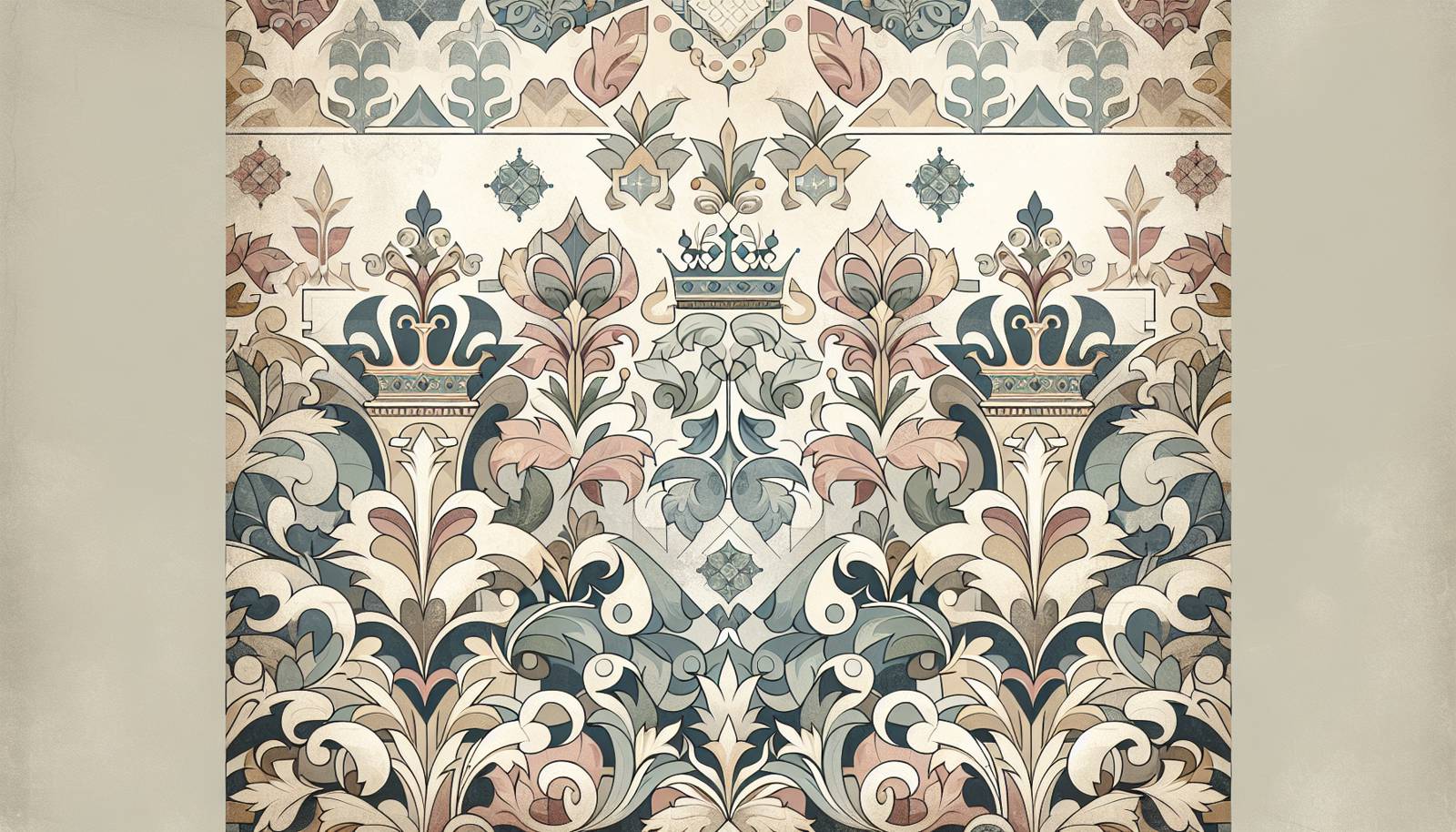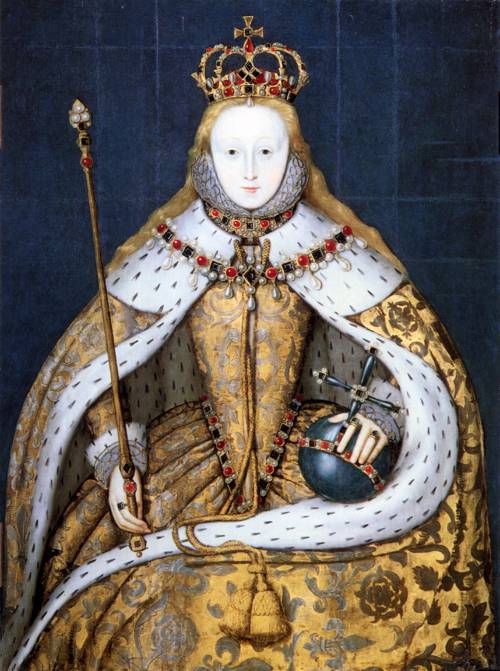
FAQ About Queen Elizabeth I

Who was Queen Elizabeth I?
Queen Elizabeth I was the Queen of England and Ireland from 17 November 1558 until her death on 24 March 1603. She was the daughter of Henry VIII and Anne Boleyn and the last monarch of the Tudor dynasty. Her reign is known as the Elizabethan Era, celebrated for the English Renaissance and marked by a period of peace and prosperity in England.

When did Queen Elizabeth I reign?
Queen Elizabeth I reigned from 17 November 1558 until 24 March 1603. Her reign lasted for 45 years, making her one of the longest-reigning English monarchs. This period is often referred to as the Elizabethan Era.

Why is Queen Elizabeth I's era called the Elizabethan Era?
The period of Queen Elizabeth I's reign, from 1558 to 1603, is called the Elizabethan Era because it was a time of significant cultural, artistic, and literary flourishing in England. The era is famous for the works of playwrights like William Shakespeare and Christopher Marlowe and marked a time of exploration, with figures such as Sir Francis Drake and Sir Walter Raleigh.

What was Queen Elizabeth I's relationship with the Spanish Armada?
Queen Elizabeth I is notably remembered for the defeat of the Spanish Armada in 1588. The Spanish Armada was a large fleet sent by King Philip II of Spain to invade England. Elizabeth's naval forces, along with unfavorable weather conditions for the Spanish, led to a significant English victory, which was seen as a turning point in English history, enhancing Elizabeth’s reputation as a powerful and resourceful leader.

How did Queen Elizabeth I influence the English Renaissance?
Queen Elizabeth I played a crucial role in the English Renaissance, primarily by providing a stable and appreciative environment for the arts to thrive. Her patronage of the arts helped promote literature, theatre, and music, contributing to the works of prominent figures like William Shakespeare and John Dowland. Her court became a focal point for the exchange of ideas, furthering the intellectual and artistic advancements of the period.

Was Queen Elizabeth I married?
Queen Elizabeth I was never married and is often referred to as the "Virgin Queen." Her decision not to marry was partly political, allowing her to maintain her independence and power without being influenced by a foreign prince or a domestic noble.

Did Queen Elizabeth I have any children?
Queen Elizabeth I did not have any children. Her lack of an heir and her decision not to marry led to the end of the Tudor dynasty. Her successor was James VI of Scotland, who became James I of England, thereby beginning the Stuart dynasty.

What are some famous quotes by Queen Elizabeth I?
One of Queen Elizabeth I's most famous quotes is from her speech to the troops at Tilbury in 1588, where she said, "I know I have the body of a weak, feeble woman; but I have the heart and stomach of a king, and of a king of England too." This quote exemplifies her strong and determined leadership qualities.

How did Queen Elizabeth I contribute to English exploration?
Queen Elizabeth I supported and encouraged exploration, leading to the expansion of England's influence overseas. She granted charters to explorers like Sir Francis Drake, Sir Walter Raleigh, and Sir Humphrey Gilbert, facilitating voyages that opened up new trade routes and established early English colonies, such as those attempted in North America.

Why is Queen Elizabeth I's reign considered a golden age?
Queen Elizabeth I's reign is often referred to as a golden age due to the significant cultural advancements, relative peace, and economic prosperity experienced in England during her time as queen. The flourishing of arts, notable naval victories, and beginnings of overseas exploration contributed to this period's esteemed reputation.

What was the Elizabethan Religious Settlement?
The Elizabethan Religious Settlement was a response by Queen Elizabeth I to create a stable religious environment in England after years of conflict between Catholics and Protestants. It established the Church of England's doctrines and practices in a way that was meant to be acceptable to the majority, though it maintained Protestant theology and preserved some traditional Catholic rituals.

How did Queen Elizabeth I manage foreign policy?
Queen Elizabeth I navigated a complex and often hostile international arena by employing diplomatic shrewdness and leveraging alliances rather than direct conflict. She balanced power with Spain and France and used her unmarried status as a diplomatic tool, managing to avoid costly wars while maintaining England's influence in European politics.

What were Queen Elizabeth I's achievements in the arts?
Queen Elizabeth I greatly contributed to the arts by fostering an environment where writers, poets, and playwrights flourished. Her reign saw the rise of iconic figures such as William Shakespeare and Ben Jonson. The construction and popularity of theatres like The Globe also reflect her era's rich cultural landscape.

What were Queen Elizabeth I's main challenges during her reign?
Queen Elizabeth I faced several challenges during her reign, including religious conflicts, pressures from foreign powers, issues of succession, and economic difficulties. She dealt with the threat of invasion from Spain, the religious divide between Catholics and Protestants, and political intrigue from factions within her own court.

How did Queen Elizabeth I maintain her power?
Queen Elizabeth I maintained her power through a combination of political acumen, fostering loyal advisors, and her charismatic leadership. She skillfully navigated court politics, used her image as a strong but benevolent ruler to great effect, and kept potential rivals and threats in check through strategic alliances and occasional ruthlessness.

What was the role of Queen Elizabeth I in the defeat of Mary, Queen of Scots?
Queen Elizabeth I played a significant role in the fate of Mary, Queen of Scots, who was seen as a rival claimant to the English throne. Mary had been implicated in plots against Elizabeth, leading to her execution in 1587. Elizabeth's decision was difficult, given the political and familial ramifications, but it quelled threats from Catholic factions supporting Mary.

Did Queen Elizabeth I face any rebellions during her reign?
Yes, Queen Elizabeth I faced several rebellions during her reign, the most notable being the Northern Rebellion in 1569, led by Catholic nobles in the north of England. These uprisings were largely fueled by religious tensions and challenges to Elizabeth’s Protestant rule, but they were effectively suppressed by her government.

How did Queen Elizabeth I's reign end?
Queen Elizabeth I's reign ended with her death on 24 March 1603. She succumbed to a combination of illness and old age at the age of 69. Her death marked the end of the Tudor dynasty as she left no direct heir, and she was succeeded by James VI of Scotland, who became James I of England.

What was Queen Elizabeth I's legacy?
Queen Elizabeth I’s legacy is vast, as she is remembered as one of England’s greatest monarchs. Her reign established a foundation for economic growth, exploration, and cultural achievements. The Elizabethan Era is often seen as a high point in English history, shaping the country’s national identity and reinforcing its power on the world stage.

What was Queen Elizabeth I's education like?
Queen Elizabeth I received an exceptional education for her time, reflective of her noble status. She was well-versed in several languages, including Latin, French, and Italian, and studied subjects such as rhetoric, philosophy, history, and theology. Her education was orchestrated by renowned tutors like Roger Ascham, making her one of the most learned women of her era.
